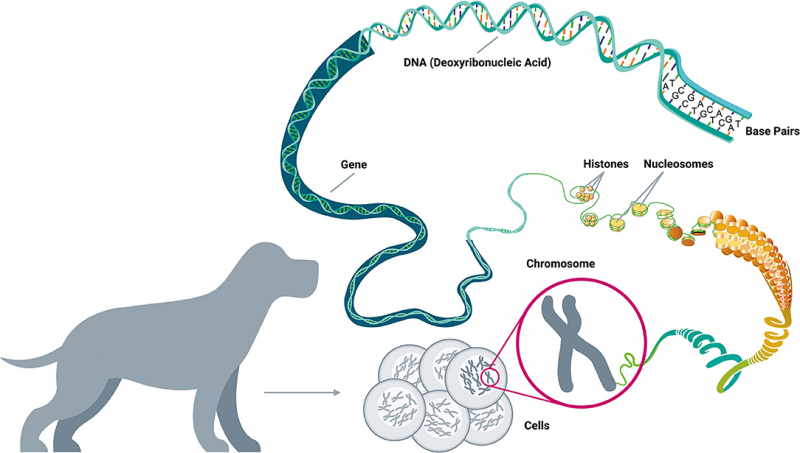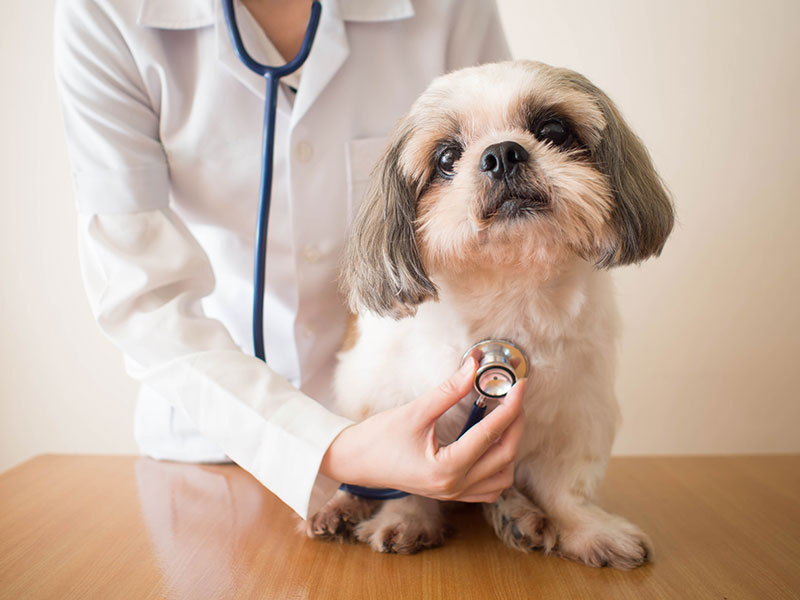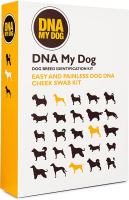Top 10 Amazing Things a Pet DNA Test Can Tell You
With so many mystery mutts from rescues, it's no surprise that dog DNA testing has grown in popularity. Dog DNA kits are becoming a popular gift idea for pet ... read more...owners, and breed reveals and guessing games have become popular on social media. However, these genetic test kits can reveal more than simply your dog's breed. Let's find out the Amazing Things a Pet DNA Test Can Tell You below!
-
The American Kennel Club recognizes over 200 dog breeds, while other foreign organizations recognize over 300. The International Cat Association recognizes approximately 70 domestic cat breeds. Every breed has DNA segments that are unique to them.
If you have a mixed-breed pet, you are aware that each individual is unique and that even littermates may not look alike. You may not obtain the complete story of your pet's genealogy if you only look at observable qualities or rely on vets' expert guesses or the word of unregistered breeders. When you have your pet's DNA tested, you will receive a complete report detailing the percentages of each breed contained in your pet's DNA. Some cat tests, such as the Basepaws DNA test, which is available on Chewy.com, even provide a ranking to illustrate how closely your cat's genes resemble those of wild cats.

via: Science 
via: Parade -
Certain breeds are predisposed to certain hereditary disorders. Dog DNA testing looks for 200 genes that are indications of inheritable disorders, whereas cat DNA tests look for up to 45 genetic markers of feline disease. Genetic testing can reveal important information about your pet's risk of a range of illnesses, including blood disorders, diabetes, gastrointestinal issues, and many others.
Some tests also include gene screening, which might detect potential bad drug reactions. Your pet's DNA report will tell you whether he or she is free of a certain genetic marker, carries a recessive gene for an illness, or is at risk of developing a disease. When discussing your pet's health with your veterinarian, this information can be quite useful. Detecting a genetic disease early enough before symptoms appear can make a huge difference in how well it is managed.
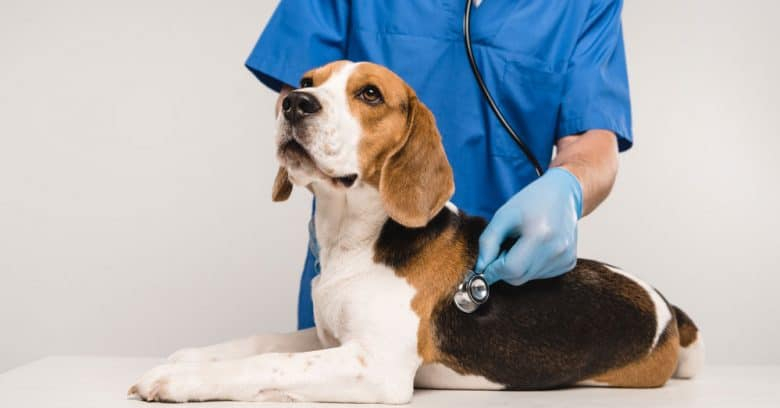
via: K9 Web 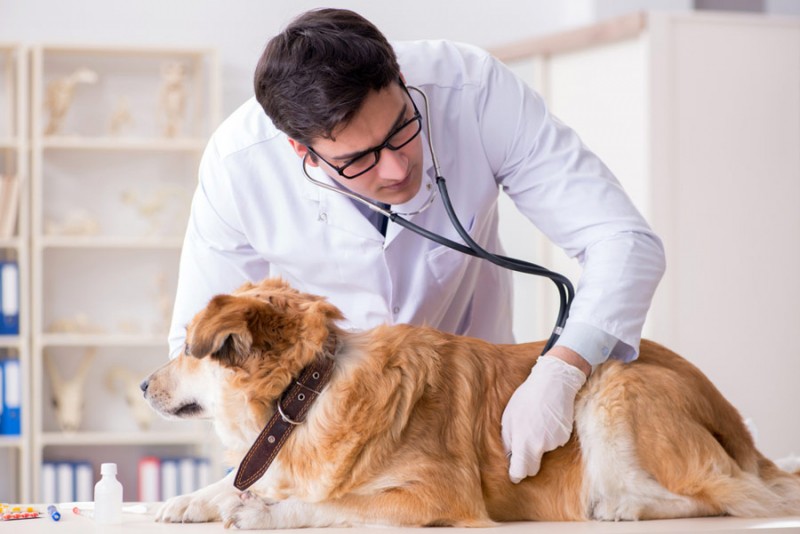
via: Pet Professional Insurance -
Whether your dog is a fluffy ball of energy or more placid and well-behaved, each has its own distinct personality, and you may be wondering how and why they exhibit the traits they do. When you have your dog or cat's DNA tested, you will receive a report with detailed information on the breeds identified in his ancestors. If you do a deep dive, you might discover why your pet does particular things.
Some of these characteristics may be inherited from their breeds, as many dogs have personality traits and triggers that can be linked back to those bred into their forefathers. 'DNA My Dog' is a common test sold by companies such as International Biosciences and Who'z the Daddy? that analyzes your dog's DNA for this information. This breed is only discovered by examining your dog's DNA; it would have been impossible to discern from her physical qualities alone.

via: DNA India 
via: Hill's Pet Nutrition -
Whether your dog is a puppy or an adult, genetic testing can provide useful information on the best methods to approach his training. Different breeds have characteristics that respond differently to different methods of training. Knowing your pup's dominant breeds can help take some of the guesswork out of teaching him or her obedience and other key lessons.
Learning that he is more of a terrier than a herder might help you identify his likes and dislikes, triggers, and goals. Some breeds respond better to the human voices, while others respond better to body language. Some breeds are better adapted to specific jobs, such as hunting, searching, leading, or consoling. When you discover the strengths and weaknesses connected with your dog's breed, you'll be able to begin your training plan with confidence.

via: Dogs - LoveToKnow 
via: Ready.gov -
Pet DNA tests can reveal comprehensive lineages dating back to great-grandparents. Your test results will tell you if your dog's grandmother was a mixed breed or a poodle whose DNA profile matches that of fancy purebred puppies. You can check through photographs of breeds in your pet's family tree for similar characteristics. Ancestry inference based on DNA can be extremely useful.
It can be used to settle family feuds over the genealogy of a cherished mongrel, and it can at least give them hope of maintaining a pet's health. Some test providers, such as Chewy.com's Embark test, will help you connect with your dog's living relatives if they are in the company's database. Look for a test that allows you to meet your dog's siblings, cousins, and distant relatives if you think it would be amusing.

via: kienthucbonphuong.com 
via: Parade -
If you bought your pet from a breeder, you should have done your homework by obtaining references and ensuring that the breeder adheres to all rules for safe and healthy breeding. Making ensuring the dog's pedigree is on file with certified associations is the greatest approach to proving that your pet is purebred. A DNA test can provide some additional information if the breeder says that your pet is a purebred or a specific type of "designer mix", but it is not an exact enough technique to validate this with 100 percent accuracy.
Rather than analyzing every bit of DNA, test companies look at certain markers in the pet's genetic composition and compare them to markers in a reference group of registered purebred dogs in their databases. Your dog's profile will be compared to that of other canines on file in order to determine a breed or breed mix. However, due to genetic variances across geographical locales and other variables, a registered purebred dog's genetic signature may differ from that of others in the database.

via: Breeding Business 
via: The Spruce Pets -
When dogs become part of the family, they become a major worry, and learning about some of their hidden characteristics may be both beneficial and enjoyable. DNA tests can help you determine which genes your dog carries but does not express, which might be useful information for breeders. Dogs and cats, like humans, inherit half of their genes from their moms and half from their fathers. They will have that trait if they have a dominant gene or two recessive genes.
A pet DNA test can reveal interesting information about your dog's or cat's recessive genes for features like coat texture and color that may manifest in the future generation. Of course, if your pet carries a recessive gene for an illness, the next generation may suffer as a result. These tests allow you to learn about their genetic history.

via: The Wildest 
via: Direct Line -
When you receive a DNA report that includes your pet's breed profile, you can look up information on her dominant breeds to figure out her appropriate weight range. You can gain vital insight into the amount of food to feed her every day, whether she is a puppy or an adult. The DNA of a pet also plays an important part in nutrition. It affects your pet's hormones, enzymes, and proteins, which aid in the formation of organs and tissues, digestion of food, and metabolism.
Genetic studies can help you predict how a pet will react to various foods and nutrients. Furthermore, if you are aware of her proclivity for specific inherited disorders, you can work with her veterinarian to tailor her diet accordingly. Choosing a diet designed specifically for your dog's breed might sometimes help you avoid sensitivities associated with that breed.

via: Ohio State College of Veterinary Medicine - The Ohio State University 
via: Pawp -
When making responsible decisions about a litter, there are numerous health tests and genetic test findings to consider. Before breeding, genetic testing can determine whether potential parents have harmful variations that could be passed on to kids. The genetic results can then be utilized to properly pair dogs in order to avoid creating at-risk puppies.
When combined with your pet's medical history, genetic test results can help you make an informed decision about whether or not to breed your pet. If the genetic health screening reveals that your pet is in danger or a carrier of a hereditary condition, it is essential to prevent passing the genes on to the next generation through breeding. And if you've discovered that your pet has the potential to be a healthy breeder, knowing some of the recessive qualities of each parent, such as hair colors, patterns, and textures, can lead to fewer surprises in the following generation.

via: American Kennel Club 
via: FirstVet -
DNA testing is a burgeoning industry. The ability of academics and clinicians to examine the genetic basis of disease, correlations between genes and phenotypes, and the molecular foundation of normal development and physiology has been transformed by the sequencing of the human genome and genomes of several model species. The genomics revolution has extended its benefits to companion animals. The tremendous variety among breeds, characterized in dogs as a result of human-driven selective breeding, is most notable.
In addition to learning new facts about your pet, you will also be contributing to future discoveries: your pet's information will be submitted to existing genetic databases, which will help scientists develop future breakthroughs in veterinary treatment. Modern DNA testing technology, on the other hand, can come back to haunt some dog owners: many cities and housing authorities are beginning to force puppy owners to submit DNA samples as part of the licensing procedure, in order to track down and penalize owners who do not clean up their dogs' feces.
